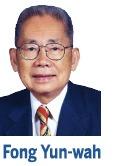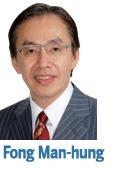The outbreak of the COVID-19 pandemic at the beginning of this year has brought an unprecedented public health crisis to the world. Undeterred by national borders, the novel coronavirus has indiscriminately attacked people of all races and social statuses. Millions have been infected worldwide due to insufficient safeguard measures, and hundreds of thousands have lost their lives so far. As the world is a global village, no country alone can overcome the deadly virus. Mutual assistance and collaboration based on a shared interest are the only means that can neutralize the health threat to the entire human race.

READ MORE: Poverty will be eradicated despite outbreak
China has remained open, transparent and responsible in its battle against the pandemic. It has proactively and promptly informed the World Health Organization of the latest updates on the nationwide infections and the knowledge of the virus, together with timely information on the country’s disease prevention and control measures. It is, at the same time, doing its utmost to provide assistance to countries and regions in need. President Xi Jinping has taken it upon himself to direct the anti-epidemic work. The six proposals and five major measures he came up with at the 73rd World Health Assembly, together with the pledge of a $2 billion fund for the international community, gave a strong boost to the anti-epidemic work worldwide. As a responsible global power, China has promised to offer the world any vaccines for COVID-19 as public goods once it successfully invents them.

Thanks to the nationwide concerted effort, the anti-epidemic situation in China is promising, with the spread of the virus having been brought under control. Nevertheless, we should not let our guard down lest the pandemic makes a comeback. The widespread outbreak has severely disrupted the lives of many; in particular, aggravating the plight of the poor. Charitable and relief work has become all the more imperative under such circumstance to ensure the basic living needs of citizens, which is the foundation of a stable society. Therefore, President Xi emphasized at the two sessions that people’s well-being and lives were the top priorities, stressing the importance of averting pandemic-induced poverty. As long as anti-epidemic work continues, subsidies to the needy shall remain. He asserted that the whole nation should strive to overcome the negative impact of the COVID-19 pandemic, and that arduous effort should be made to secure victory in the fight against poverty.
According to The Great Unity, a chapter of The Book of Rites, which was written more than 2,000 years ago, the Chinese believe that the sense of serving a community origins from the love and care for the aged family members
Being the most populous country in the world, China has made remarkable achievements in poverty alleviation under the reign of several State leaders over the past decades. It has successfully lifted hundreds of millions of Chinese citizens out of extreme poverty, which is a significant contribution to the ongoing global poverty alleviation work. For China, this year marks the milestone of overcoming poverty and building a moderately well-off society. To this end, government agencies and charity organizations at all levels should mobilize human and material resources to tackle poverty in a meticulous manner. Not only do they have to, as an ongoing mission, ensure the needy are well-protected, but also they ought to formulate long-term plans to enhance the effectiveness of the poverty alleviation models, so that more people can benefit from the expanding charity work.
ALSO READ: Poverty-alleviation goal achievable despite outbreak
As China’s medical and living standards continue to improve, the number of those 65 years old and above is rapidly rising. As the country has already become an aging society, elderly care service, particularly in the rural areas, will become a crucial part of poverty alleviation. Owing to the gap between urban and rural development, youths residing in rural areas readily relocate to urban areas to pursue career opportunities. This aggravates the problem of an aging population and the empty-nest elderly, who are left behind in rural areas. The lack of young laborers in rural areas is forcing some of these elderly to work on their farmland. Strenuous manual labor and overwork accelerates the degeneration of their physical body, leading to worsening health conditions and the inability to make ends meet. Worse still, as shown in statistics, the poor medical services in rural areas renders these elderly more vulnerable to chronic diseases. The absence of physical care from their children, moreover, means that they are more prone to mental illnesses, such as depression. Thus, in the future, more human and monetary resources should be dedicated to increasing the scale and effectiveness of poverty alleviation so that relief measures can target each individual household. Eventually, people’s livelihoods will be improved in line with the ultimate goal of shared prosperity.
ALSO READ: Safeguarding the elderly
The Chinese nation has always considered filial piety as the most important among all virtues. According to The Great Unity, a chapter of The Book of Rites, which was written more than 2,000 years ago, the Chinese believe that the sense of serving a community origins from the love and care for the aged family members. When such love and care are extended to the other elderly in the neighborhood so that they joyfully live in a place where they belong, a caring community will take shape. Since senior citizens have devoted their prime years to their family and society, they deserve to be respected and taken care of with adequate financial and medical supports. The social norm of ensuring the happiness of the silver-haired population will eventually make the country a better place to live.
Fong Yun-wah is the chairman of Fong Shu Fook Tong Foundation and the Fong’s Family Foundation. Fong Man-hung is a member of the National Committee of the Chinese People’s Political Consultative Conference.
The views do not necessarily reflect those of China Daily.


